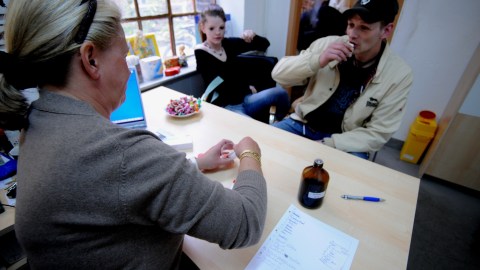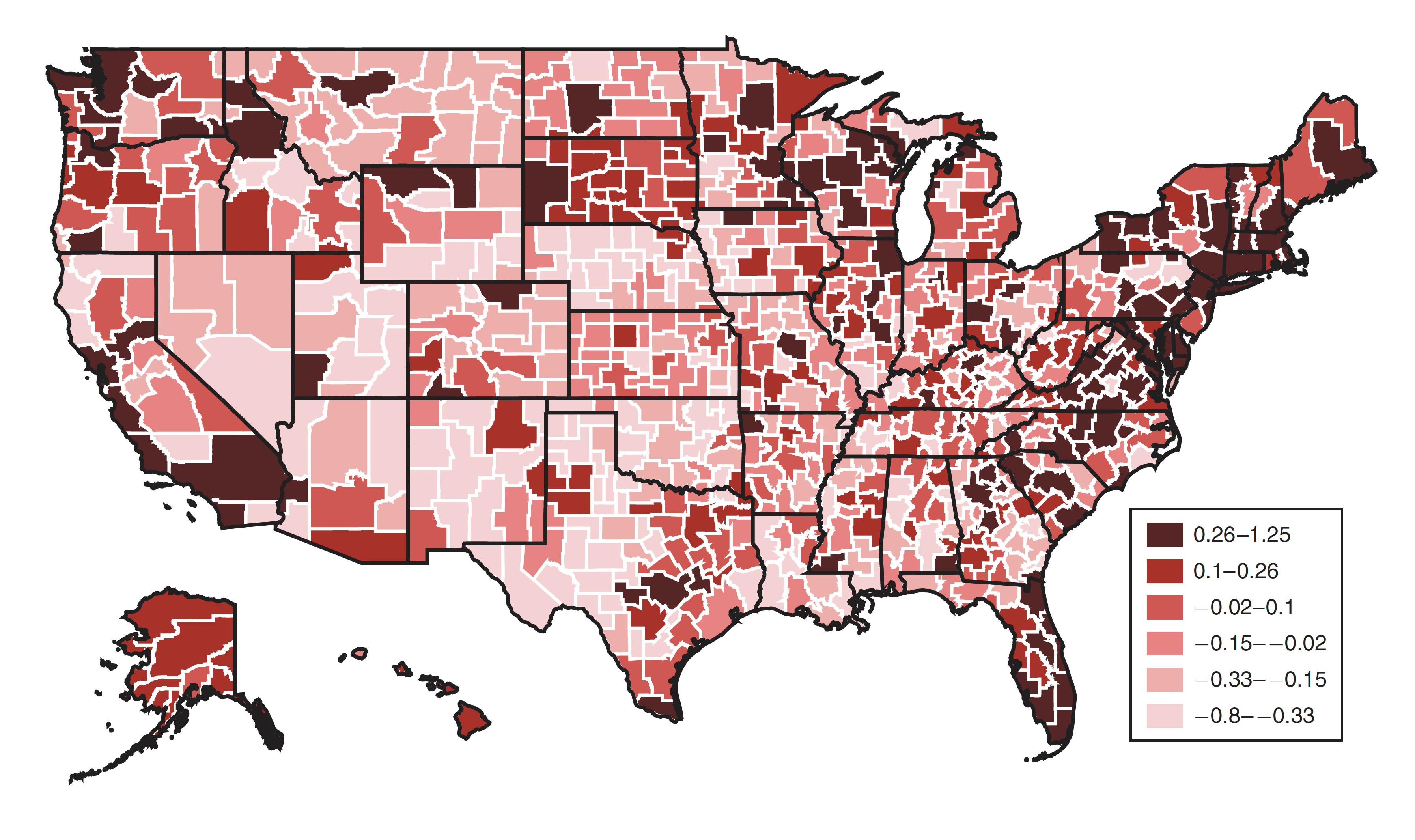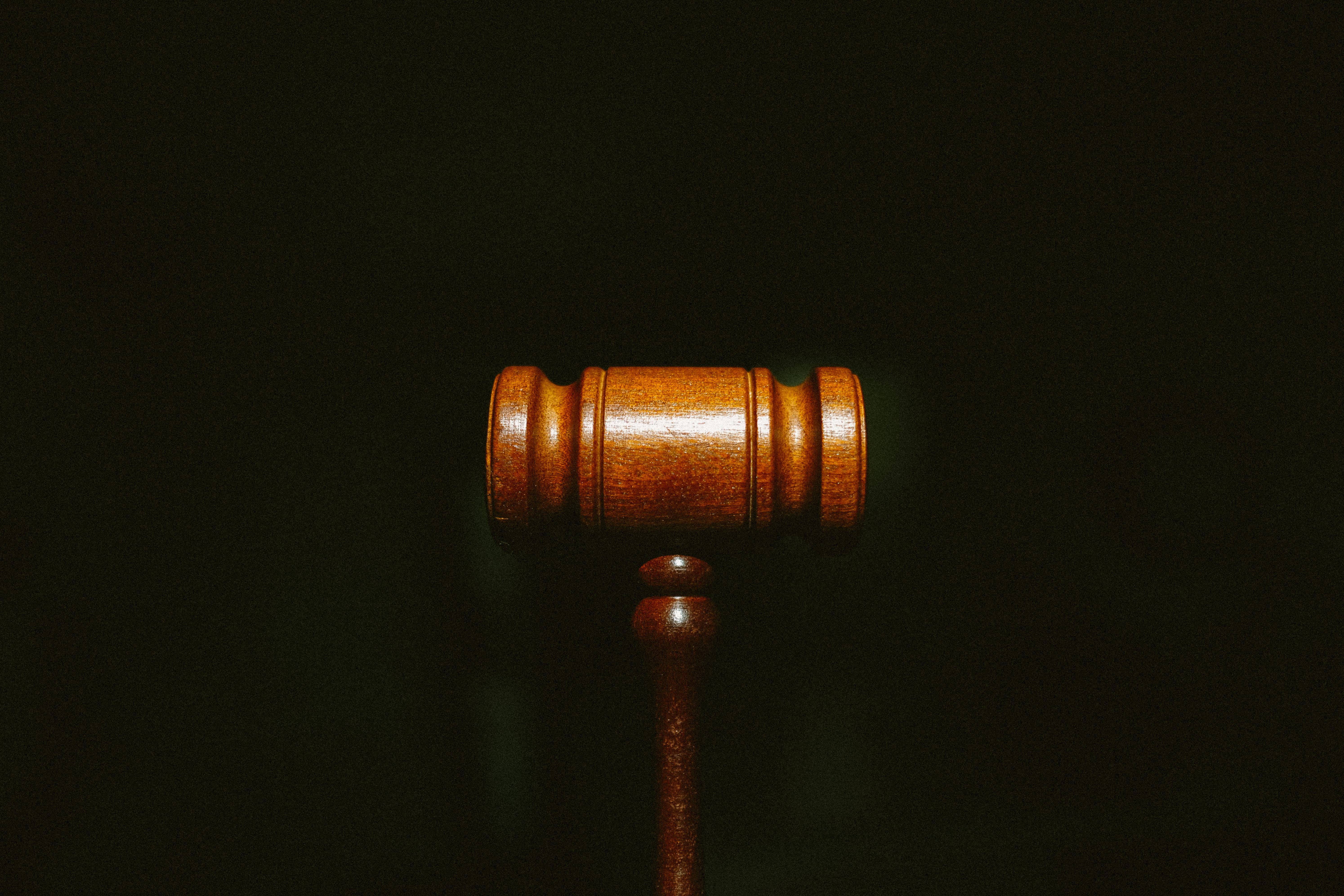Have we reached a humane alternative to the war on drugs?

Getty Images
- The War on Drugs has taken fifty years of America’s time, and an unfathomable amount of our blood and treasure.
- A new method for dealing with drug abuse, treating it as a disease rather than a moral failure, is being tried.
- Studies suggest this is a better way to deal with the problem, and programs using this view are seeing success.
The war on drugs is nearly 50 years old. In that time, countless billions of dollars have been spent on it, unnumbered millions have been incarcerated because of it, and thousands upon thousands of lives have been taken in the places were the war has turned violent.
With more and more Americans supporting the legalization of marijuana, an increasing abhorrence to the mass incarceration of non-violent offenders, and the general realization that the war on drugs didn’t really work, alternatives to treating drug use as a crime are being proposed as ways forward to both help those struggling with addiction and keep dangerous chemicals off the streets.
One program from Seattle has attached a fair amount of attention and study. Dubbed the LEAD program, it could offer a new way forward for American drug policy.
The LEAD program
Law Enforcement Assisted Diversion (LEAD) is a program that shifts drug policy focus away from prosecution and towards recovery.
Rather than immediately arrest and lock up low-level drug offenders or prostitutes, officers are given the discretion to offer them help in the form of treatment programs. If they choose to accept treatment, they are given resources such as addiction recovery, stable housing, and help finding work.
Those who choose the treatment mostly avoid the court system altogether, and see more counselors than judges. They are not charged with crimes that go on their records either. The only real catch is that the “client,” as they are called, has to see a counselor at least twice in the first month of signing up. Everything else, including how quickly they are expected to quit taking drugs, is determined on a case-by-case basis.
Violent offenders are not eligible for the program, and nobody has to participate in it. It would be strange if you didn’t, though. While Seattle is a…. leader in this area, dozens of counties and municipalities around the country are looking into or have started similar programs.
While the program hasn’t been around long, beginning only in 2011, it has been the subject of a few studies. One found that people who go through the program are much less likely to be arrested again than those who choose not to go through it. Another shows that LEAD graduates are more likely to have jobs and stable housing, both essential parts of staying clean and out of jail. There have also been reports of less drug use overall and a reduced prison population.
Why do this? Why spend the money on junkies and dope fiends?
Because it does what the war on drugs was supposed to do and never did: actually keep people off drugs.
While it can be satisfying to stick it to people we’re angry at, it is rarely a suitable method for reaching social goals. Intellectuals of all political persuasions have condemned our current system for dealing with drug use as ineffective, immoral, and an immense waste of money.
The RAND Corporation has issued countless reports testifying to the lack of sense behind the strategy the war on drugs uses. Several studies have shown putting people in prison is a terrible way to make sure they don’t use drugs again when they get out and has a variety of other problems it creates. Libertarian darling Milton Friedman condemned the War on Drugs from both an economic and a philosophic point of view, as has progressive hero Robert Reich.
When you can get those two to agree on a major policy option for both moral and economic reasons, you know you have something special.
The War on Drugs is a failure; only the most adamant generals in the fight can fail to see that. A new strategy for dealing with high rates of drug addiction and the pain it can cause is needed. The LEAD program shows that treating addiction as a disease rather than a moral failing and acting accordingly are not only viable but may be better methods for getting people to stop using drugs than anything we’ve tried before.
Whether we have the same political will to apply the LEAD program’s lessons as we did when we wanted to lock up every pothead we could find is another question. Let’s hope that we do.





